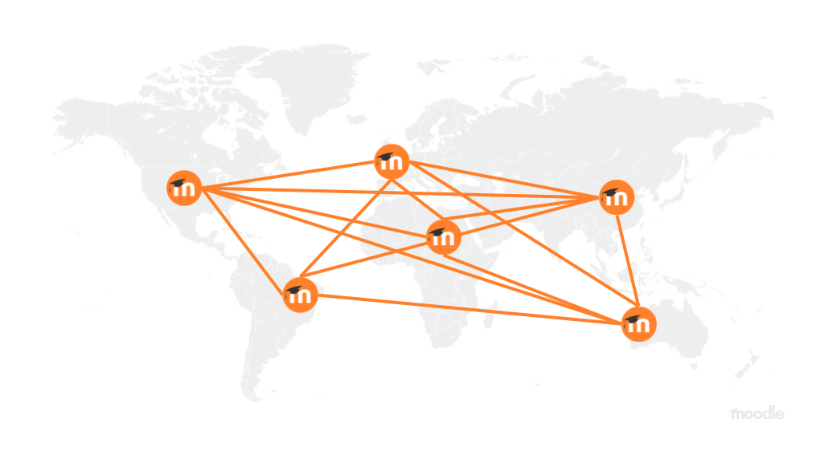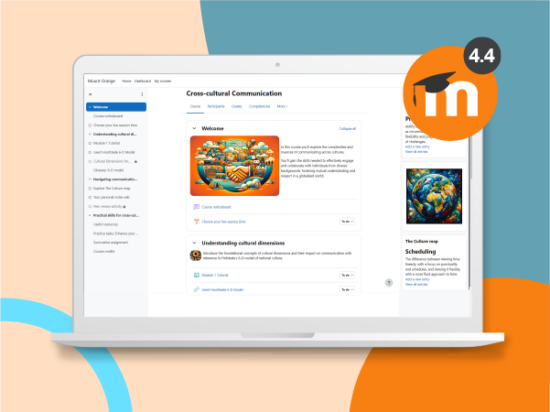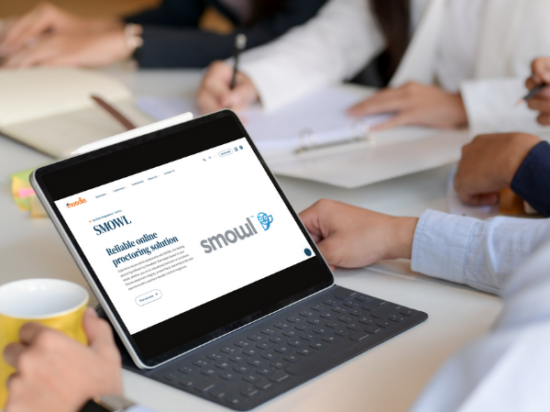By Doug Belshaw, Product Manager of MoodleNet
MoodleNet is our new open social media platform for educators. It is focused on professional development and the sharing of openly-licensed resources, and it is built on a federated model. Let’s explore that further!
MoodleNet: to boldly go…

Photo by Jeremy Thomas on Unsplash
What do you think of when you hear the word ‘federation’? Your mind might go straight to something like Star Trek or Star Wars where interplanetary alliances aim to defeat the forces of evil. Alternatively, you may think of the ‘federal’ structure of countries like the USA, where each state has a measure of independence as part of a wider whole.
Excitingly, Moodle will soon be harnessing the power of federation to launch MoodleNet, our new open social media platform for educators.
Instead of a single website or platform, MoodleNet is a federated system of independent communities that join together to make a network. There are many benefits to this type of decentralisation, including:
- Participation – encourages diverse contributions
- Efficiency – quicker, more locally-informed decisions
- Privacy – allows organisations to keep some data private
When joining MoodleNet, users sign up to a particular instance (or ‘node’) which gives them access to the network. The instance you join might be run by Moodle HQ, or a Moodle Partner, or your organisation; it may even be one you have set up yourself. Instead of a username like @moodler, your username also includes your instance name, so for example: @moodler@home.moodle.net.

Email: a federation you’re familiar with
If you’re thinking that this sounds a lot like email, that’s indeed a good analogy! Email is a federated system: once you have an account, it’s possible to interact with anyone else who has an email address. It doesn’t matter who has provided their email account, or what software they use, it all just works.
Similarly, with MoodleNet, you can interact with anyone with an account on any other MoodleNet instance due to the federated architecture. And because just like email federation can seamlessly work across countless different software thanks to its underlying standardised protocols, MoodleNet uses the ActivityPub W3C standard, meaning you can also interact with people on other compatible platforms, such as Mastodon or PeerTube.
The good news is that, just like with email, we’ve designed MoodleNet to be really easy to use. So you don’t need a PhD in network theory, detailed knowledge of the Star Trek franchise, or to be American to use MoodleNet! All you need is a desire to share and interact with your peers, both in your organisation and around the world.
Get involved!
- Click here to be notified when we’re ready for public sign-ups on the Moodle HQ-run MoodleNet instance.
- Alternatively, if you or your organisation have the technical knowledge to be part of our federation testing programme, please follow the instructions in this blog post.
- If you would like to be involved in localisation efforts, please check out our repositories on Transifex. For code contributions, our repositories can be found on GitLab.
Do you want to know about MoodleNet? Follow the team’s updates at blog.moodle.net



